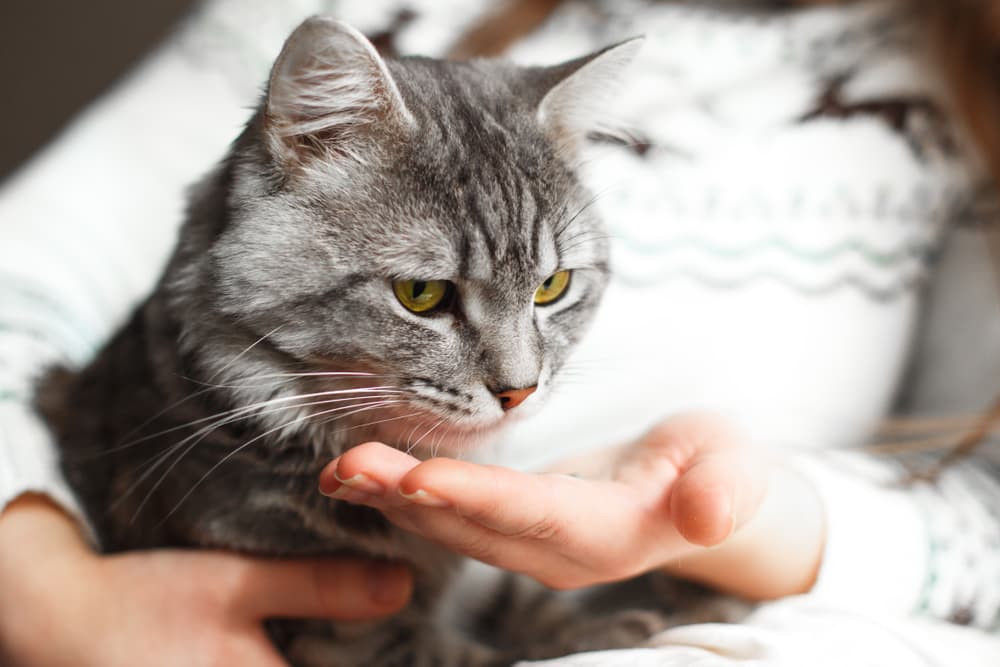

In the ever-evolving world of veterinary medicine, Doxycycline emerges as a notable antibiotic for treating a spectrum of feline health concerns. This versatile medication effectively combats bacterial infections, offering a lifeline for cats dealing with ailments ranging from respiratory infections to skin conditions. Its broad-spectrum action targets diverse bacterial strains, making it a go-to choice for veterinarians. The role of Doxycycline in feline healthcare goes beyond mere treatment; it is about enhancing the quality of life for our feline companions. It’s not just about fighting infections, but about ensuring a happier, healthier life for cats. When considering Doxycycline for cats, the focus is on balanced care. It’s not just about administering an antibiotic; it’s about comprehensive health management. This approach includes considering the unique needs of each feline, tailoring dosages and treatment plans to their specific conditions. The use of Doxycycline in feline care underscores a commitment to advanced, compassionate veterinary practices. It represents a blend of medical expertise and the understanding of the unique physiology of cats, ensuring that our furry friends receive the best possible care with minimal stress and maximum efficacy.
Correct Dosage of Doxycycline for Feline Health
Determining the correct dosage of Doxycycline for cats is a task that blends precision with care. Each feline patient requires an individualized approach, where factors such as weight, age, and the specific health condition being treated are meticulously considered. This careful calibration ensures that the therapeutic benefits of Doxycycline are maximized, while minimizing any potential adverse effects. Every time a beloved pet is sick, breeders run for information on the Internet and they often come across words like Doxycycline. After reading the information, people wonder, where can I buy Doxycycline online? Well, in the next publication we will tell you in detail how this can be done. The goal is to achieve a harmonious balance – enough medication to effectively combat the infection, yet gentle enough to be well-tolerated by the delicate feline system. Veterinarians play a crucial role in this process, bringing their expertise to the forefront to tailor dosages that align with the health needs of each cat, thereby fostering their well-being and recovery.
Doxycycline Efficacy in Cat Bacterial Infections
Doxycycline, with its potent antibacterial properties, stands as a formidable ally in the fight against feline bacterial infections. Its efficacy lies in its ability to inhibit the growth and spread of bacteria, thus providing relief and fostering healing in cats suffering from various bacterial ailments. Whether it’s respiratory infections, skin wounds, or urinary tract issues, Doxycycline serves as a versatile medication. This adaptability, coupled with a generally favorable safety profile, makes it a preferred choice among veterinarians. Its role in treating infections in cats underscores the importance of tailored veterinary care and the necessity for ongoing research into effective animal healthcare solutions.
Side Effect Management in Cats on Doxycycline
When administering Doxycycline to cats, it’s crucial to monitor and manage potential side effects to ensure their well-being. Although typically well-tolerated, some felines may experience mild to moderate reactions, such as gastrointestinal upset or changes in appetite. Vigilance is key in these scenarios. Veterinarians often advise on specific dietary adjustments or timing of medication to mitigate these effects. In rare cases, more serious reactions may occur, necessitating prompt veterinary attention. The goal is always to balance the therapeutic benefits of Doxycycline with the utmost care for the cat’s overall health and comfort. This careful oversight exemplifies the dedication to providing compassionate and effective veterinary care for our feline companions.
Comparing Doxycycline with Other Feline Antibiotics
In the realm of feline healthcare, Doxycycline is often weighed against other antibiotics to determine the best course of treatment. This comparison is critical, as different antibiotics have varied strengths and target specific types of infections. Doxycycline, known for its effectiveness against a range of bacterial infections, is especially valuable when treating respiratory and skin infections. Its ability to penetrate tissues deeply makes it a preferred choice in certain cases. However, veterinarians also consider factors like the cat’s medical history, potential drug interactions, and the specific nature of the infection before making a decision. This meticulous approach underscores the importance of personalized veterinary care, ensuring that each cat receives the most suitable antibiotic treatment for its unique health needs.
Integrating Doxycycline in Overall Feline Health Plans
Incorporating Doxycycline into the broader health management plans for cats is a practice rooted in its versatility and efficacy. This antibiotic, adept at addressing a range of infections, plays a vital role in preventive health strategies and treatment regimens alike. When integrated into overall health plans, Doxycycline is carefully balanced with other aspects of feline care, such as diet, routine check-ups, and vaccinations. The focus is not just on treating current ailments but also on maintaining long-term health. This holistic approach to using Doxycycline reflects a commitment to comprehensive care, where every aspect of a cat’s health is considered in unison, ensuring a balance between immediate treatment and ongoing well-being.
Preventive Use of Doxycycline in Veterinary Care for Cats
The use of Doxycycline in a preventive capacity within veterinary care for cats marks a proactive approach to feline health. This antibiotic, recognized for its efficacy against a variety of infections, is increasingly being considered in preventive health strategies for cats, especially those at higher risk of bacterial diseases. The focus is on preemptive action rather than reactive treatment, underscoring the shift towards more holistic health management in veterinary practices. Such preventive use involves careful dosage and timing, tailored to each individual cat’s health profile and environmental exposure risks. This strategic use of Doxycycline in preventive care highlights the evolving nature of veterinary medicine, where anticipation and early intervention are key components in maintaining the health and well-being of feline companions.
Customized Doxycycline Protocols for Different Cat Breeds
The customization of Doxycycline protocols for various cat breeds represents a significant advancement in veterinary medicine. Understanding that each breed possesses unique physiological traits and susceptibilities, veterinarians now tailor Doxycycline treatments to cater to these specific needs. This personalized approach ensures that each cat receives the most effective and safe dosage, minimizing the risk of adverse reactions while maximizing therapeutic outcomes. This breed-specific strategy reflects a deepening comprehension of feline genetics and health, allowing for a more nuanced and effective deployment of antibiotic treatments. The move towards such personalized protocols is a testament to the evolving sophistication in veterinary care, ensuring that our feline companions receive the best possible treatment suited to their individual characteristics.
Long-Term Impact of Doxycycline in Feline Treatments
The long-term impact of Doxycycline in the treatment of cats has become an area of increasing focus and importance. As veterinarians and pet owners alike seek to understand the extended consequences of this medication, recent studies and observations have shed light on its effects over time. These insights reveal that while Doxycycline is effective in addressing immediate bacterial infections, its extended use necessitates careful monitoring to mitigate any potential health implications for cats. This heightened awareness underlines the importance of balancing the immediate benefits of treatment with a mindful approach towards a cat’s long-term health. The ongoing research in this area is indicative of the evolving nature of veterinary science, where the welfare of animals is continuously reassessed to ensure optimal health outcomes over their lifetimes.
Real-World Veterinary Experiences with Doxycycline for Cats
The real-world experiences of veterinarians using Doxycycline for treating cats offer invaluable insights into its practical application. These firsthand accounts from the field highlight the adaptability of Doxycycline in addressing various feline health issues, particularly bacterial infections. Veterinary professionals report its effectiveness in a range of scenarios, from routine treatments to more complex cases. These experiences also shed light on the importance of tailoring dosages to individual needs, emphasizing the necessity of a personalized approach in veterinary care. Such real-life stories not only reinforce the utility of Doxycycline in feline healthcare but also underscore the ongoing need for veterinary expertise in guiding its use. This collective knowledge from veterinary practice serves as a crucial foundation for future advancements in feline medical treatments, ensuring that cats receive the most effective and safe care possible.




